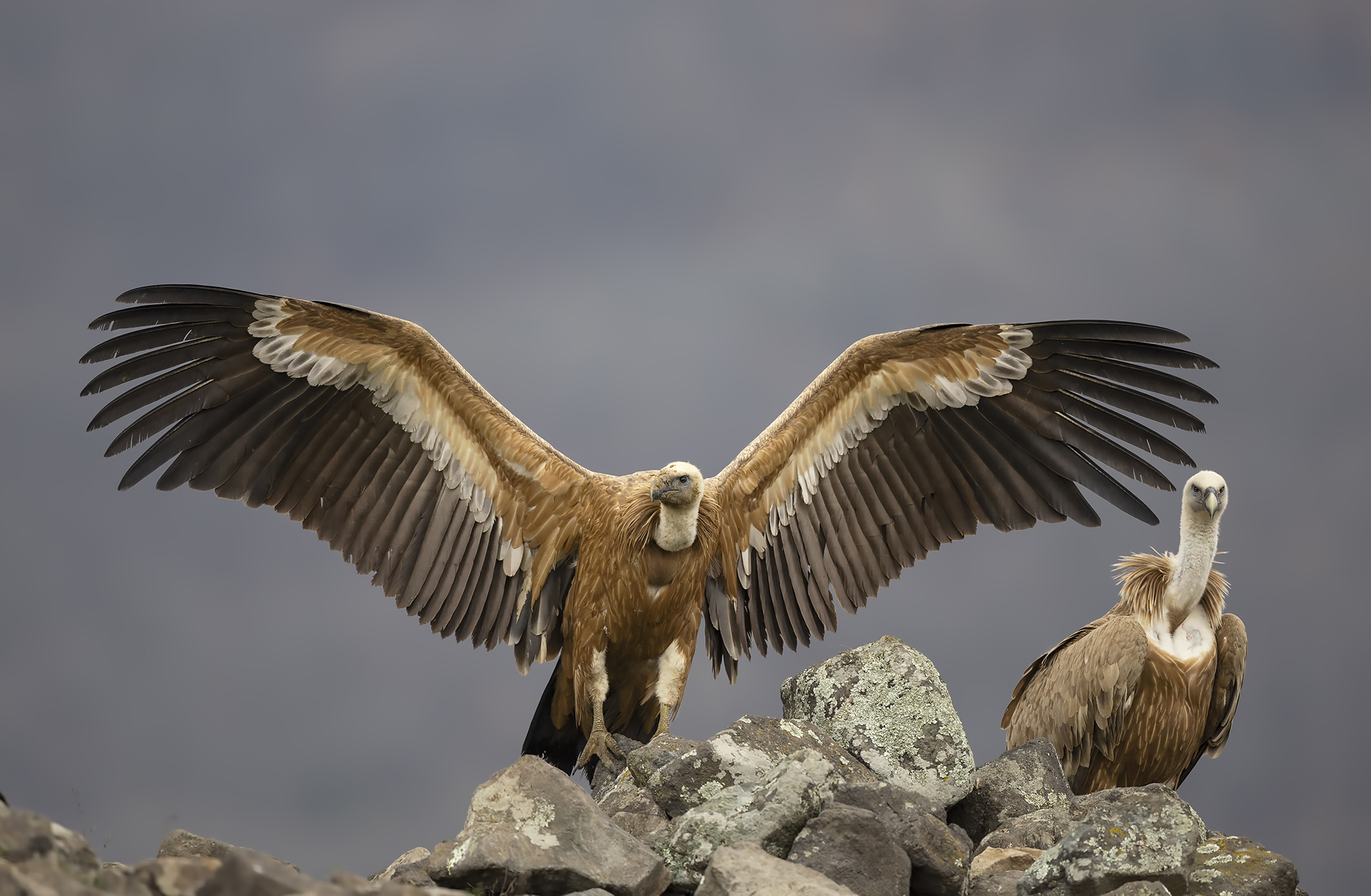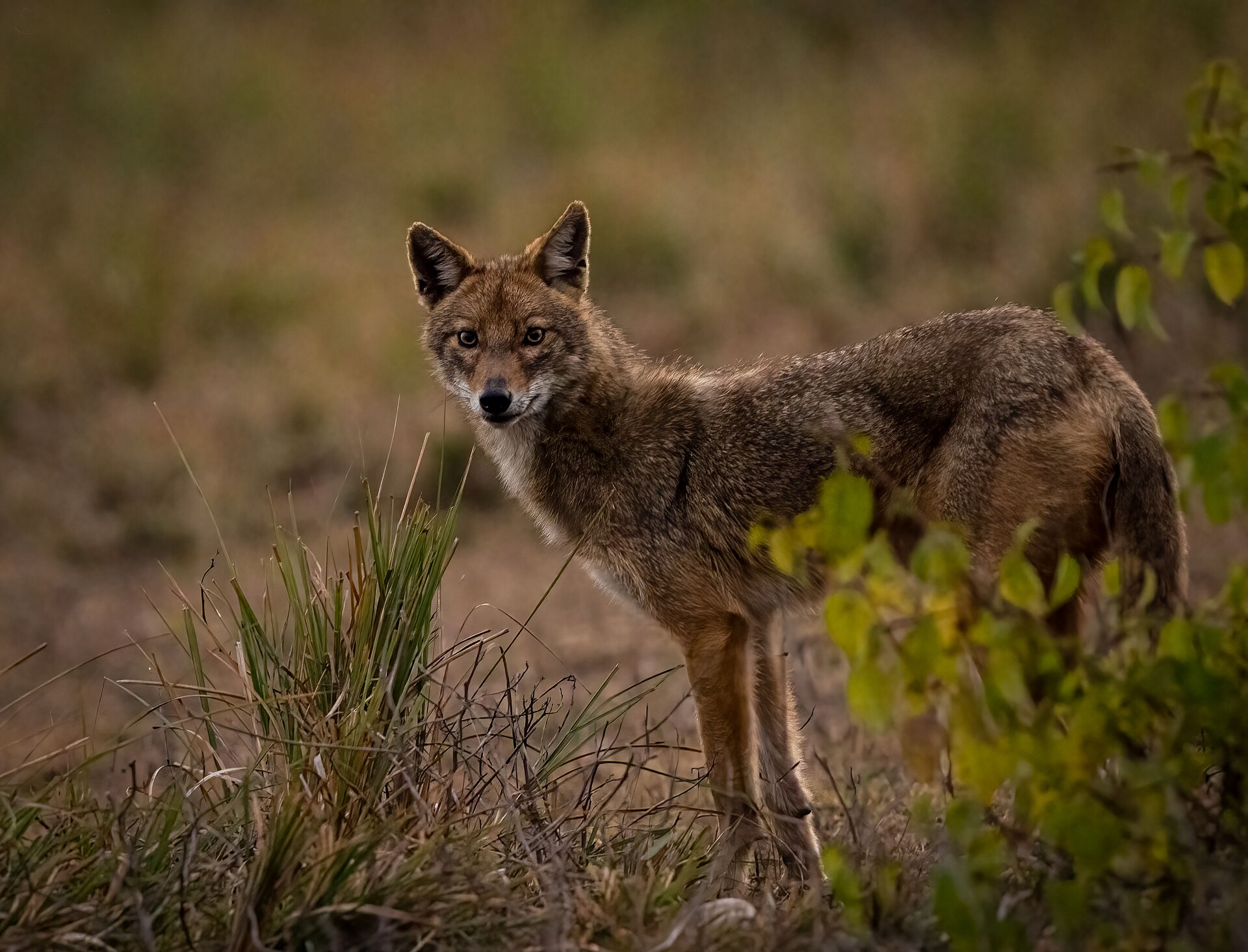Lead poisoning is one of the leading causes of death among vultures in Europe. It endangers not only vultures, but also other wildlife, hunting dogs, and humans who consume game meat. Lead hunting ammunitions are the main source of this silent threat, therefore addressing this issue requires a comprehensive approach. In Croatia, where Griffon vultures (Gyps fulvus) are making a slow recovery, efforts to eliminate this threat have taken a practical, community-focused turn, thanks to the LIFE SUPport project.
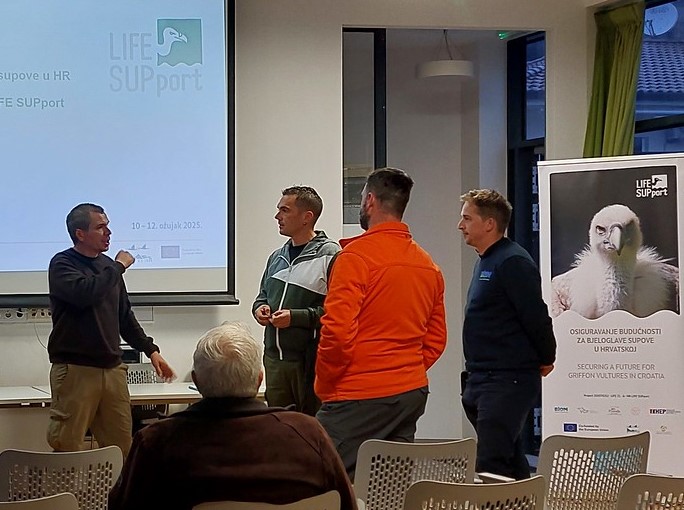
Lead intoxication: a widespread but preventable threat
Lead is a heavy metal commonly used in hunting ammunitions. It is toxic to every living being: plants, animals and humans; and at high doses it is lethal. Sub-lethal exposure affects reproduction, behaviour, and long-term survival. When a shotgun pellet is fired, it scatters across the landscape and within the carcass. The danger comes from ingesting lead particles contained in game meat. Therefore, scavengers, like vultures, are especially vulnerable to this threat.
In Croatia, where the Griffon vulture (Gyps fulvus) population is slowly increasing, continued use of lead ammunition puts this progress at risk. Recent findings from the LIFE SUPport project show that lead is already present in young vultures before they leave the nest. In 2024, out of 17 tested vultures, almost half had measurable levels of lead in their tissues. One individual had a dose high enough to cause death.
Addressing the problem with action
A LIFE SUPport project, led by BIOM, aims to secure a safer future for vultures in Croatia. One of its strategies is working directly with the people who can make a difference—hunters. Since its start in 2023, the project has organized educational workshops designed to inform and involve them in the solution, and to promote the voluntary transition to non-lead ammunition. The transition is based on a proven approach: awareness, accessibility, policy, and direct engagement with hunters.
During these sessions, hunters learn how lead affects vultures, people, and the ecosystem. Speakers include experienced hunters, veterinarians, and wildlife conservationists. They provide hunters with science-based information on how lead fragments from ammunition end up in carcasses and eventually in the digestive systems of vultures and other scavengers. Participants learn that even low exposure can damage organs, reduce fertility, and lower survival chances.
The project doesn’t stop at theory
Hunters receive samples of non-lead ammunition to try in real hunting situations. This hands-on approach builds trust and allows participants to form their own opinions about performance and usability.
Feedback has been encouraging—94% of a sample of 129 hunters said the alternatives work very well. These responses show that with the right information and access, many are willing to move away from toxic ammunition. Importantly, they understand that abandoning lead benefits not just vultures, but their own health and the environment.
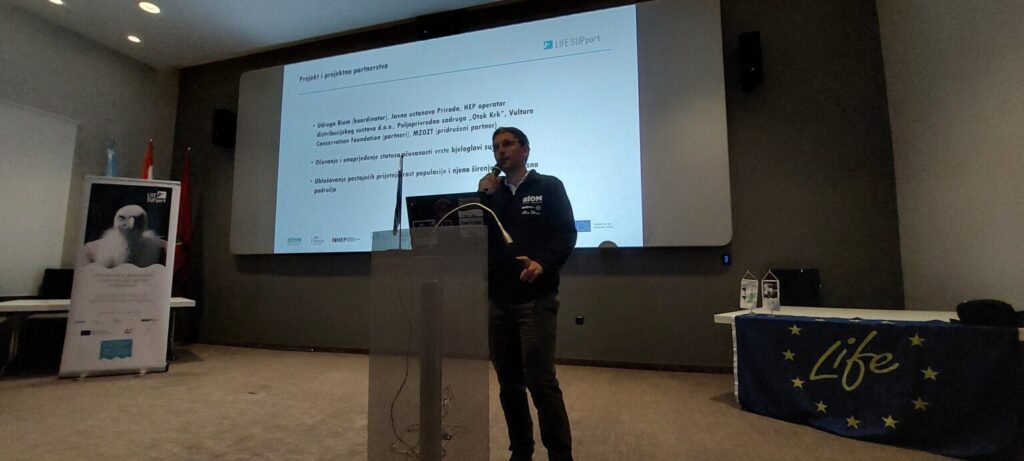
©LIFE SUPport – BIOM
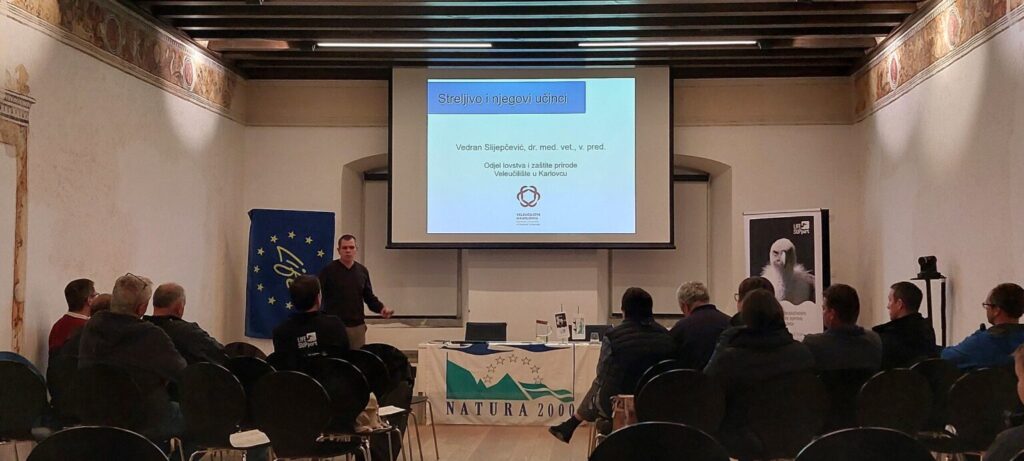
Results are already visible
The 2024 Griffon Vultures breeding season brought promising news in Croatia. Thanks to consistent conservation efforts, including additional feeding stations and rescue operations, 152 Griffon vulture pairs nested in Kvarner Islands—the highest number recorded in the 21st century. Nonetheless, lead exposure still threatens this fragile population. Continued collaboration with the farming and hunting community is essential to build on this success.
Workshops like those organised by the LIFE SUPport project are proving that conservation works best when science meets local communities. The switch to non-lead ammunition is a concrete step everyone can support. It’s a decision based on science, ethics, and shared responsibility, with a proven incredibly positive effect on vultures populations, public health and the environment.
LIFE SUPport
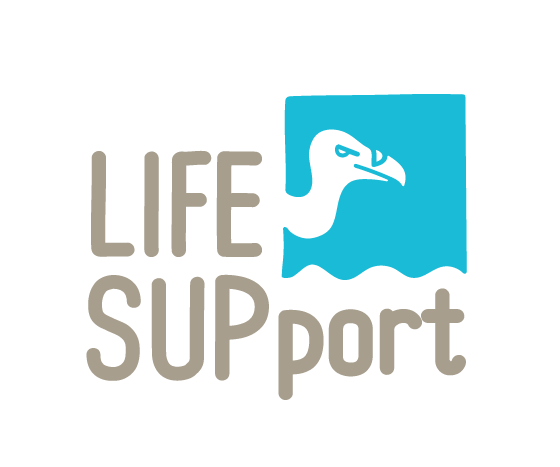
A LIFE SUPport aims to strengthen Croatia’s endangered Griffon Vulture (Gyps fulvus) population. A 5-year project co-financed by the EU’s will create better conditions for the species to thrive and recolonise its historical breeding ground on the Croatian mainland. The project aims to improve breeding and survival conditions, minimise nest disturbance, reduce nestling mortality, tackle the threat of poison, mitigate collision and electrocution risks, and increase food availability.
A LIFE SUPport is a 2.1 million project from January 2023 until December 2027. A joint effort led by BIOM with Public Institution Priroda, Otok Krk Agricultural Cooperative, HEP – Operator distribucijskog sustava d.o.o., the energy distribution company, the Vulture Conservation Foundation and the Croatian Nature Protection Directorate (Ministry of Economy) as associate partners.


